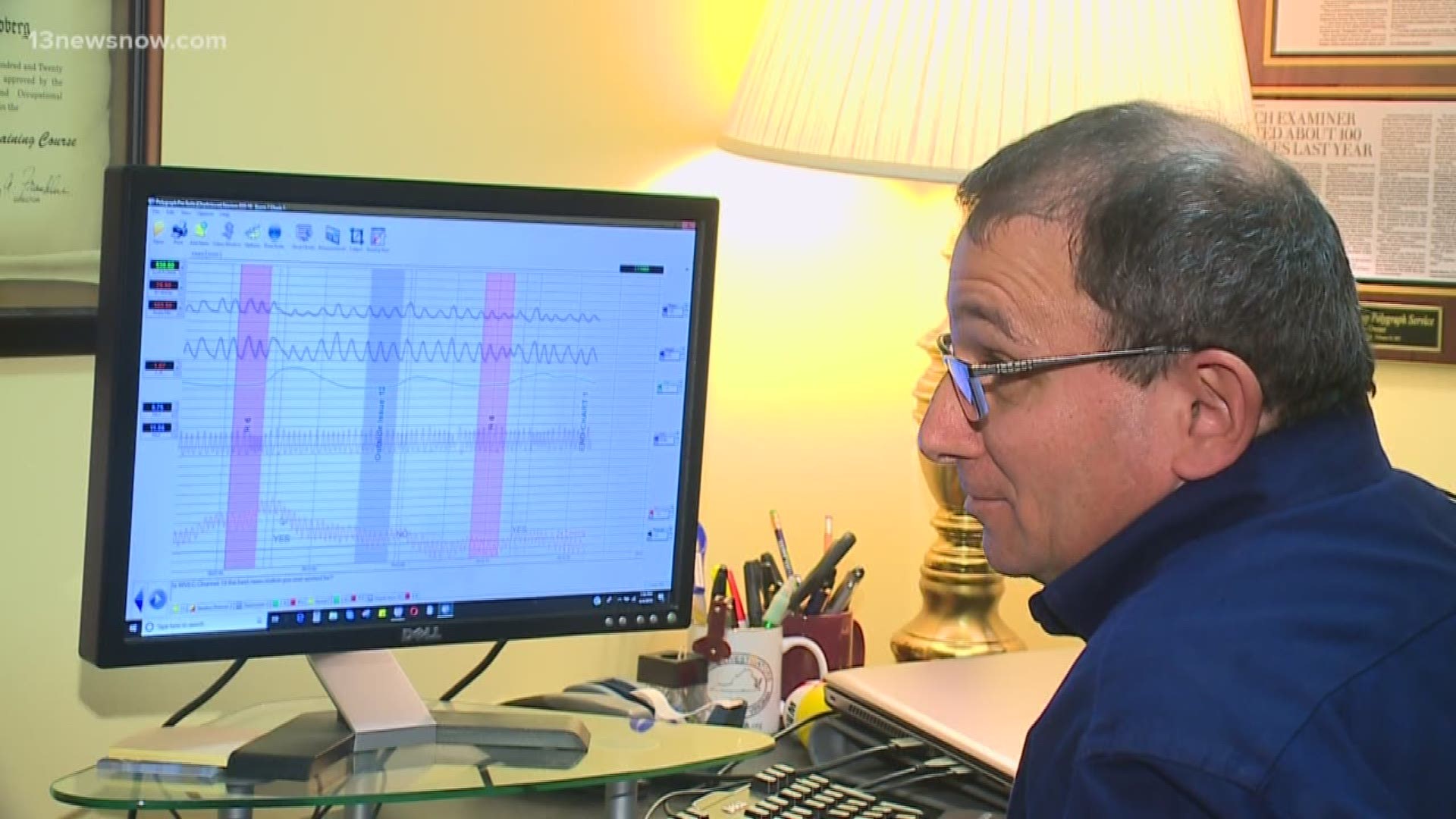RICHMOND, Va. — We’ve all seen polygraph tests in action movies and crime drama TV shows, but just how accurate are they?
Questions about the validity of the tests come after Virginia Lt. Governor Justin Fairfax released results of a polygraph test as proof of his innocence, amid accusations that he sexually assaulted two women.
Polygraph examiner David Goldberg of Executive Protection Group Polygraph Service said for the majority of people, they are accurate.
“They do work and they’re about 98 to 99 percent accurate,” Goldberg said. “People cannot beat the test.”
However, polygraph tests are not admissible in court. Former FBI agent Stephen Foster said that’s because there are people out there who can, in fact, trick the test.
“A polygraph is not going to tell you if someone is truthful or lying, that’s not what it does,” Foster said. “Some people are just guilt-free, they don’t necessarily have a conscience or maybe they refocus their attention in a different direction or they control their emotions a little bit. And some people are able during a polygraph to tense up their muscles and change their blood pressure in their body.”
Foster said although polygraphs can be a useful tool for investigators in extracting confessions, there’s a percentage of people who can trick the results.
But Goldberg said it all boils down to who the examiner is and the type of questions asked – so you don’t get a false pass or a false fail.
“If you don’t get a proper reaction to the questions and get a wrong reaction then that individual - you could do them injustice,” Goldberg said. “By showing that they failed when obviously they should not have failed or you’re passing them when they should not have passed.”

